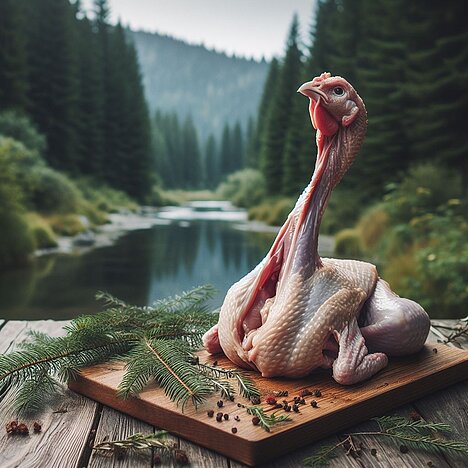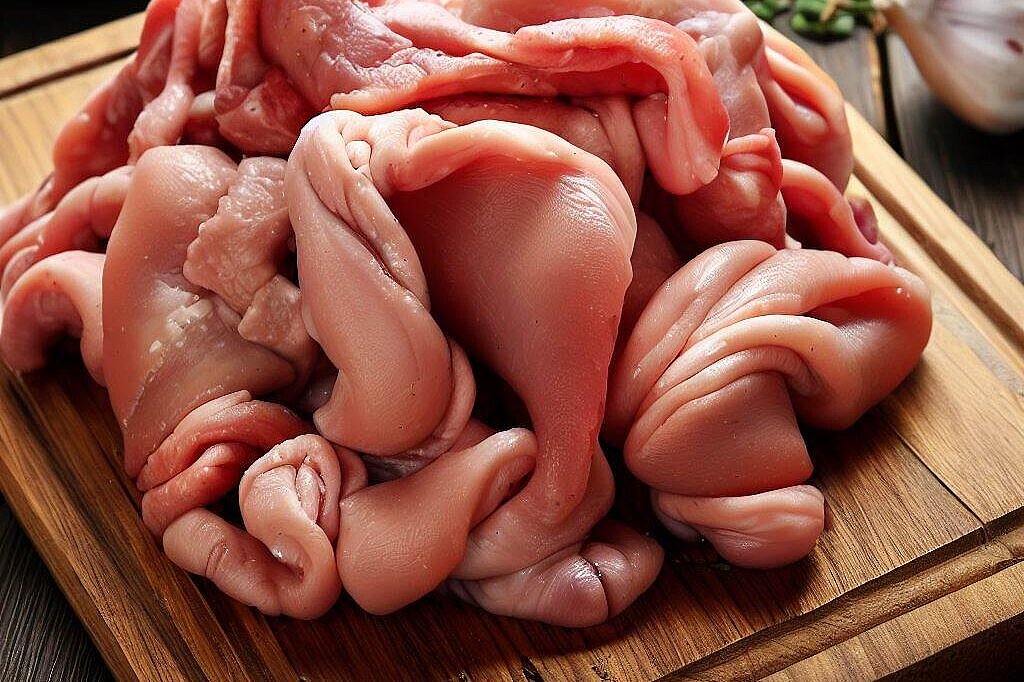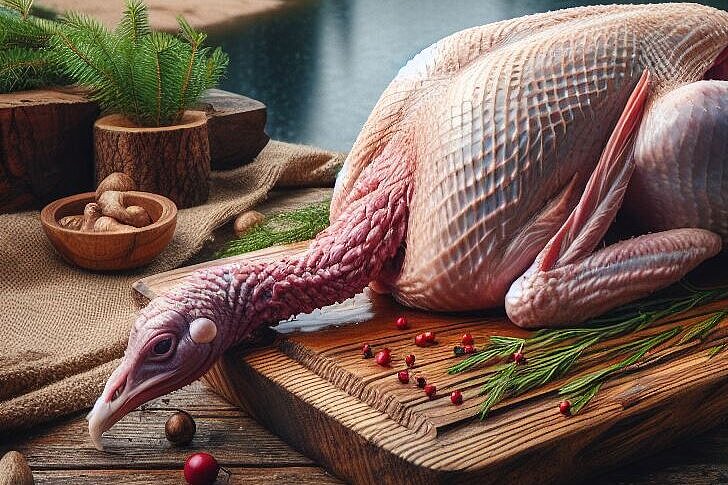Chicken necks

What are chicken necks?
Chicken necks are a part of the poultry skeleton consisting of cartilage and meat. They are relatively soft and easy to chew, making them an ideal chew for dogs. Chicken necks are high in protein, calcium and phosphorus, which are important for your dog's muscles, bones and teeth. They can also aid digestion and prevent tartar.
What are the benefits of chicken necks for dogs?
Chicken necks can have many benefits for your dog if you feed them in moderation. Here are some of them:
- They are a natural and species-appropriate food for dogs that satisfies their instincts.
- They are a good source of high-quality protein, which strengthens the muscles and supports the immune system.
- They provide calcium and phosphorus, which are essential for bone development and dental health.
- They stimulate saliva production and help to remove plaque and tartar.
- They massage the gums and prevent inflammation.
- They promote intestinal flora and digestion by providing fiber and firming up the stool.
What are the disadvantages of chicken necks for dogs?
Chicken necks are not without risks for your dog. You should consider a few points before feeding them. Here are some of them:
- They can contain bacteria such as salmonella or campylobacter, which can lead to diarrhea or vomiting. That's why you should always buy and feed them fresh or frozen.
- They can have splinters or sharp edges that can injure your dog's throat or gastrointestinal tract. Therefore, you should always give them under supervision and make sure that your dog chews them thoroughly.
- They can lead to an overdose of calcium or phosphorus if you feed them too often or in too large quantities. This can lead to kidney problems or bone disease. Therefore, you should only give them as a supplement to your dog's normal diet and not more than 10% of their daily calorie requirement.
How to feed chicken necks correctly?
If you want to give your dog chicken necks, you should follow some tips to avoid potential problems. Here are some of them:
- Choose chicken necks from a trusted source that are fresh or frozen.
- Store them in the fridge or freezer and feed them within 24 hours of thawing.
- Wash your hands and all utensils thoroughly after handling raw poultry.
- Only give your dog as many chicken necks as he can eat at once. Do not leave any leftovers that could spoil.
- Watch your dog eat and intervene if he has problems or chokes.
- Always provide fresh water.
Chicken necks can be a tasty and healthy addition to your dog's diet if you feed them correctly. They can bring him many benefits, but also carry some risks.
If you notice any signs of hypersensitivity or poisoning in your dog, you should see your vet immediately. We are not a substitute for a vet, but we try to be as accurate as possible. Every dog reacts differently and we recommend you get a second opinion or consult your vet if in doubt.
Stay healthy and take good care of your four-legged friend!😊
Similar to Chicken necks
Duck necks are poultry parts consisting of the neck and head of the duck. They are usually offered dried or frozen and can be fed whole or cut into pieces. Duck necks contain a lot of meat,...
Goose necks are, as the name suggests, the necks of geese. They consist of muscle meat, cartilage, skin and bones. Goose necks are usually cut into pieces and offered frozen. They can be ordered in...
Poultry necks are the necks of chickens, turkeys or ducks that are produced as offal. They consist of meat, cartilage, skin and bones and contain many nutrients such as protein, fat, calcium,...
Turkey necks are the necks of turkeys that are a by-product of slaughtering. They consist of cartilage, meat and skin and contain many nutrients such as protein, calcium, phosphorus and glucosamine....



